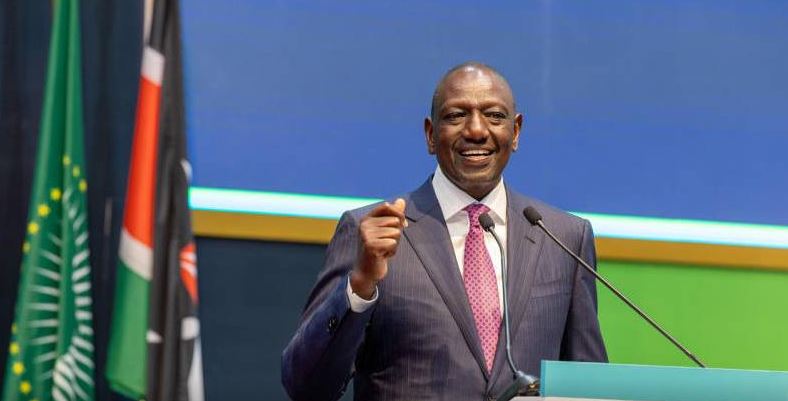
The 29th edition of the Kenya Economic Update indicates that ongoing fiscal consolidation efforts, tight monetary policy, and fading tailwinds from the agricultural rebound are expected to slow down gross domestic product (GDP) this year.
The country’s real GDP growth accelerated to 5.6% in 2023, surpassing the previous year’s growth of 4.9%.
The growth in 2023 was propelled by the recovery of the agriculture sector, attributed to improved weather conditions, and the services sector, with tourism and financial services making significant contributions.
According to the Kenya Economic Update titled “Fostering Trade for Robust Growth and Dynamic Job Creation,” Kenya’s macroeconomic performance in 2023 was shaped by tight fiscal and monetary policies, elevated inflation, rising debt service obligations, high borrowing costs limiting access to global capital markets, and the sharp depreciation of the shilling.
Despite this challenging environment, Kenya’s economic growth demonstrated resilience and accelerated, driven by strategic policy measures implemented by the government, which bolstered overall macroeconomic stability.
“In a decisive move to stabilize the macroeconomic environment, the Government of Kenya successfully conducted a partial buyback of the Eurobond in February 2024, a move that significantly eased the immediate liquidity constraints for the year, instilling a sense of calm in the markets,” said Keith Hansen, World Bank Country Director for Kenya.
“The improved macroeconomic conditions, and re-access to international financial markets, are anticipated to boost investor confidence and private investment.”
The Kenya Economic Update (KEU) projects an average GDP growth of 5.2% during 2024-2026, driven by favorable weather conditions for the agricultural sector, a rebound in industry, and the resilience of services. The outlook relies on factors such as sufficient rainfall, the government maintaining its fiscal consolidation trajectory, and the continued implementation of structural reforms.
The report anticipates a more prominent role for the private sector in Kenya’s medium-term recovery.
Efforts in trade integration could significantly boost economic growth and job creation. Agriculture emerged as the leading contributor to Kenya’s exports, followed by minerals and chemicals.
However, Kenya’s export performance has been subpar, lacking product diversification and losing competitiveness in key markets.
The report highlights Kenya’s proactive engagement on global, continental, and regional levels to enhance its role in the global economy and promote regional and international trade integration. The country aims not only for export growth but also seeks to translate it into job opportunities.
“Even though the export-to-GDP ratio has declined, the potential for export expansion remains significant,” noted Naomi Mathenge, World Bank Senior Economist for Kenya.
“Targeted policy considerations are crucial to fully capitalize on economic growth and robust job creation from trade integration.”
Key policy considerations include revising trade and investment policies to promote export orientation, ensuring policy coherence and predictability, strengthening institutions, enhancing strategic skills development, providing multifaceted support for export orientation, and attracting more Foreign Direct Investment to optimize the benefits of trade integration. Additionally, the country must address trade and climate-related vulnerabilities, particularly for agricultural exports.








